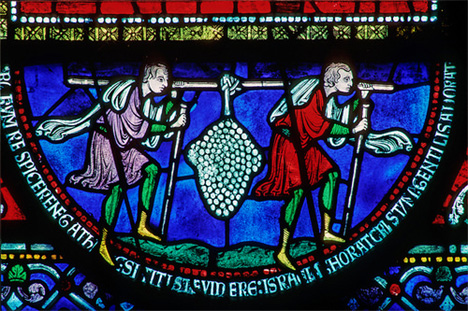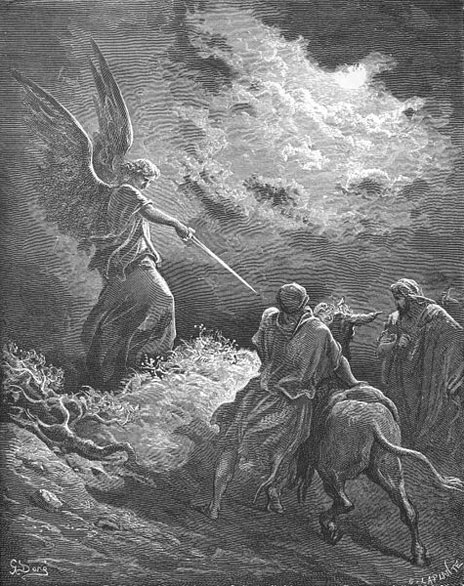Nephilim, Anakim, and Why Andrew Wilson is Wrong

Why do serious theologians persist with a story that reads like third-rate fan fiction?

Why do serious theologians persist with a story that reads like third-rate fan fiction?

“In the days when our courts are declaring that good is evil and evil is good, the recovery of baptism as a delegation of divine legal authority rather than a sign of ‘limited Covenantal obligation’ is crucial.”
Every biblical Covenant is a word from heaven designed to bring a response from the earth. When the laws in the Ark of the testimony were given to Israel, the response of a legal oath was required, intended to culminate in the legal witness of Israel to the nations. Thus, every biblical Covenant is also a process which leads to maturity, beginning with cultivation and ending in representation.
A child must be schooled before he can be employed. A man must be a disciple before he can be an apostle. Adam was to be qualified before he could represent God as a just and merciful judge on earth. But the difference between cultivation and representation is the difference between circumcision and baptism, and this facet of the biblical Covenants is something paedobaptists are unable to accept, at least in its full glory.
For seizing the devoted plunder of Jericho, Achan was stoned to death and burned with fire, along with his children, livestock, and all his possessions. This judgment appears to contradict Deuteronomy 24:16, which forbids the punishment of children for the sins of their fathers.
It seems that the solution is architectural. Here’s an excerpt from the forthcoming Sweet Counsel:

Part 1 | Part 2 | Part 3 | Part 4 | Part 5
We have reached the sixth cycle of Numbers, which seems to include chapters 30-34. Seeing as it has been a while since we looked at Numbers, here’s the overview again, with this next cycle in red.
Overview of Numbers
Strange Fire
We’ve reach the central “cycle” of the book of Numbers, the attempt by Balak to destroy Israel. To the unbeliever, it is a story about a talking donkey. For believers, it is a story about a wicked prophet and a carnal people. For those with a wide angle “Bible Matrix” lens, the entire landscape suddenly comes into focus as something familiar and terrifying.
“Now therefore fear the Lord (T)
and serve him in sincerity and in faithfulness. (H)
Put away the gods that your fathers served (E)
beyond the River and in Egypt, (O)
and serve the Lord.” (S)
Joshua 24:14
Israel famously wandered in the wilderness for forty years. They were tested, offered as a sacrifice and refined with the holy fire of the Law of Moses. This “threshing” process appears at the centre of the Bible Matrix. It is pictured as the time of harvest (Pentecost – the giving of the Law), and as the burning eyes of the Lampstand watching over Israel (sun, moon and five visible planets). In the Covenant pattern it is the “Ethics,” the bit where God lays out the rules for success. Threshing is also a biblical euphemism for sexual relations. At this point, under the Lawful eyes of God, Israel is either shown to be a faithful bride or an adulteress. Is the fire of her desire true or “strange” (foreign). We can see this pattern in James 1:15. It is a sick parody of the Covenant process because it begins with a “false word.”
[This post has been refined and included in Sweet Counsel: Essays to Brighten the Eyes.]
Continue reading
 Behold, when we come to the land, you shall bind this line of scarlet thread in the window from which you let us down… Joshua 2:18
Behold, when we come to the land, you shall bind this line of scarlet thread in the window from which you let us down… Joshua 2:18
Each Israelite was to wear blue tassels on the four corners of his robe. The tassel was a blue cord that unraveled into threads, a “one” that became many. Using the “systematic typology” of the Bible Matrix, we can see that these four blue tassels correspond to the four rivers the flowed down from the spring under the Garden of Eden. [1]
So, what’s the deal with the “red cord” that Rahab was commanded to display in her window in Jericho? Firstly, the Hebrew word isn’t the same word as the “cord” in Numbers 15.
“Let this mind be in you which was also in Christ Jesus, who, being in the form of God, did not consider it robbery to be equal with God, but made Himself of no reputation, taking the form of a bondservant, and coming in the likeness of men. And being found in appearance as a man, He humbled Himself and became obedient to the point of death, even the death of the cross. Therefore God also has highly exalted Him and given Him the name which is above every name, that at the name of Jesus every knee should bow, of those in heaven, and of those on earth, and of those under the earth, and that every tongue should confess that Jesus Christ is Lord, to the glory of God the Father.” (Philippians 2:5-11)
This passage (or pericope?) retraces the Covenant pattern, which is also played out in the flow of the history of Israel. We’ll have a look at the structure of the passage and then I want to discuss the significance of the literary placement of “every tongue.”
WARNING: Weird ahead.
[This post has been refined and included in Sweet Counsel: Essays to Brighten the Eyes.]
Continue reading